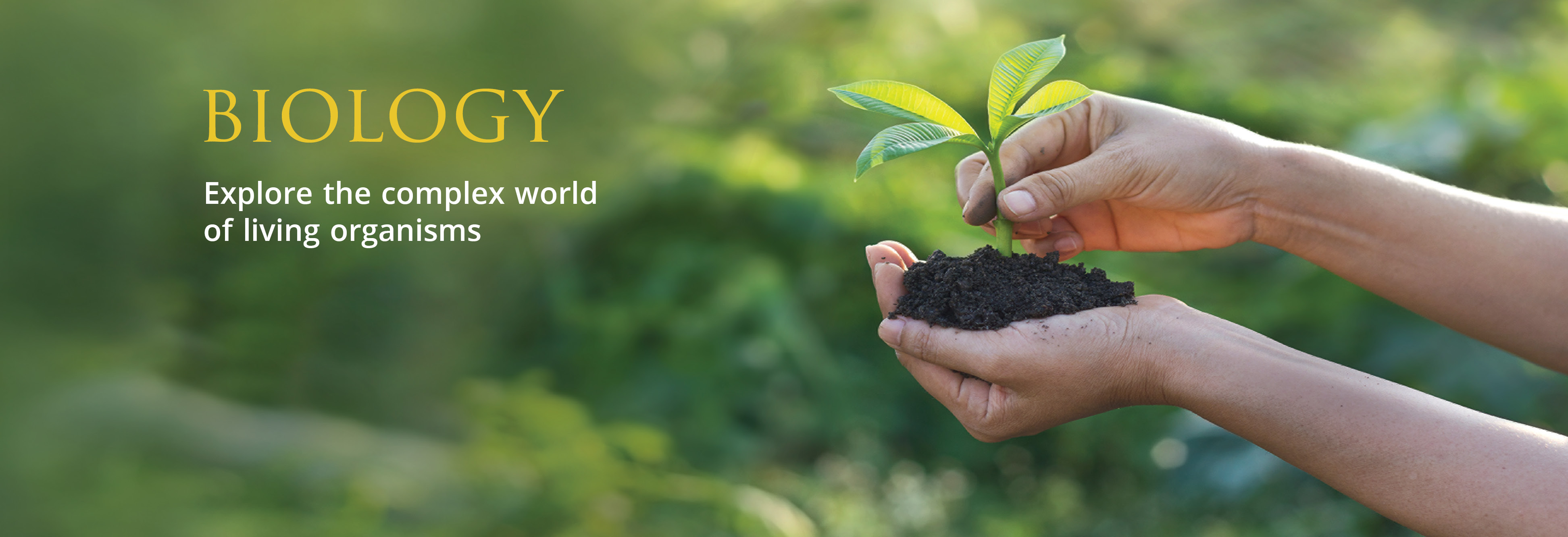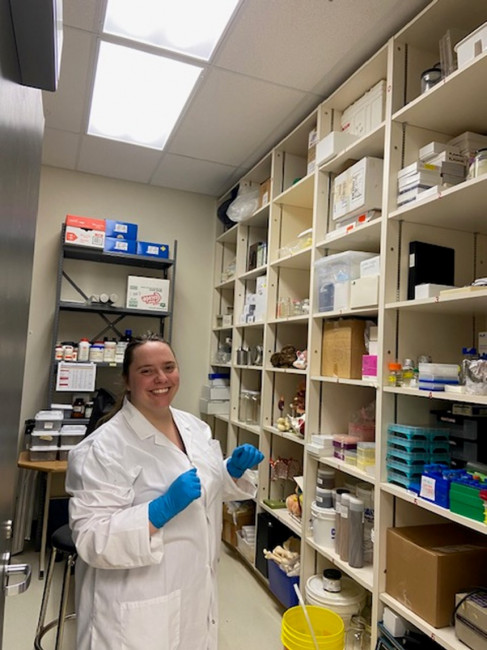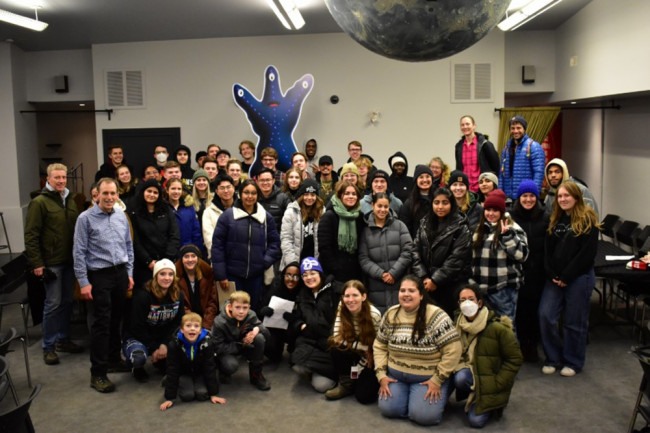Welcome to Ambrose Sciences! Lead the industry with Ambrose University’s Bachelor of Science Biology program. As the only university in Alberta to be part of the Green Chemistry Commitment, you can explore the complex world of living organisms in compliance with Ambrose’ Christian commitment to steward God’s resources wisely.
Ambrose provides academic excellence in science education with a liberal arts component that prepares students to examine ideas from multiple perspectives, solve problems, adapt, and collaborate. I teach interdisciplinary courses that critically examine, synthesize and evaluate knowledge across a broad range of disciplines.
Liza Abraham, Associate Professor, Chemistry
Why Science at Ambrose?
Interdisciplinary As a liberal arts university, part of the degree requirements are in cross disciplinary. This is critically important to help students think holistically and strategically, and consider other perspectives as becoming a scientist.
Faculty Interaction Science classes at Ambrose are usually around 20 students, which allows faculty to work closely with students in engaging active learning. This learning environment also serves students well as it allows for opportunities to do integrative research under the direct guidance of faculty.
Science and Faith Integration The faculty at Ambrose integration cutting-edge research, environmental stewardship, and Christian faith into their teaching. Students will graduate with the distinctive capacity to connect knowledge learned to solve real-world issues and take into account multiple perspectives.
Science Outcomes
Drawing on the institutional statements relating to Mission, Educational Principles, and Arts and Science Educational Objectives, Biological Science programs offer a transformative, Christian education that is academically rigorous and redemptive in nature. The graduating student demonstrates:
1. Understanding: Graduates will be able to articulate scientific epistemology, the scientific process, and knowledge of the natural world and the place of humanity within its systems.
In the Sciences, understanding develops through observation, modelling, theory building, and hypothesis testing. Although the process is similar across scientific disciplines (e.g. Life Sciences, including Biochemistry, Cellular and Molecular Biology, Ecology, Kinesiology, Medicine, Physiology, and Zoology, or Physical Sciences, including Astronomy, Geology, and Physics), each discipline has its own theories, methodologies, data, and assumptions that must be understood in order to have a holistic understanding of the natural world. Such understanding further equips the scientist to identify the benefits and limitations of Western science and traditional knowledge, to use science well for the flourishing of creation, to identify misuses or misapplications of science, and to critique and challenge pseudoscience.
2. Research: Graduates will be able to apply skills for framing scientific study, investigation, and problem solving to advance knowledge.
In the Sciences, research uses methodologies appropriate to the scientific question. Research links theory and observation with previously published knowledge, and engages in the process of peer review and publication to advance knowledge. Designing an investigation with replicability requires familiarity with equipment, safety, and acceptable processes and procedures (e.g., observing, measuring and quantifying, classifying, predicting, controlling variables, interpreting, analyzing, using appropriate statistics, and forming conclusions). Research skills in science are transferable across the disciplines, including detailed observation, neatness, organization, time management, data processing, adaptability, and teamwork.
3. Analysis: Graduates will be able to use academic judgement to think critically and objectively evaluate knowledge.
In the Sciences, analysis includes interpreting data, closely reading scientific texts, assessing conflicting results, forming falsifiable hypotheses, recognizing patterns, problem solving, making inferences, identifying the limitations of science, working within ethical parameters agreed by governing bodies (e.g. animal care, research ethics), and reviewing diverse and complex forms of information to evaluate its source and identify bias.
4. Communication: Graduates will be able to communicate clearly, concisely, and compellingly to disseminate knowledge at a level appropriate to the audience.
In the Sciences, communication happens at personal, professional, and public levels and can take a variety of forms, for example print and digital. Scientific communication includes data keeping in laboratory notebooks, experimental and research papers, oral and poster presentations, grant proposals and applications, public presentations, and, increasingly the dissemination of knowledge via social media. Communication also includes professionally engaging with supervisors and colleagues during the course of a study, and the ability to accept criticism and feedback to bring together a better product.
5. Character: Graduates will exemplify, with maturity of character, the best of the Christian intellectual tradition and a liberal arts education, expressing itself in wisdom, integrity, and service to the Church, society, and the created order.
In the Sciences, character undergirds action, including traits of being wise, honest, sensible, kind, quick to listen, constructively critical, temperate, perseverant, patient, courageous, creative, and generous in sharing with others. It also includes the skills of moral and ethical reasoning, and produces an attitude of reverence for knowledge, respect for intellectual work and expertise, and a love of learning. Character will manifest itself in leadership, initiative, positivity, and cooperation in interactions with diverse others, rooted in Christian approaches to life, work, society, and culture.








